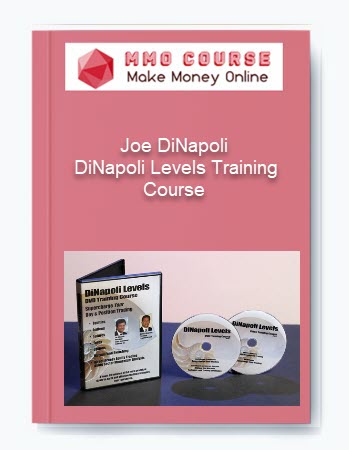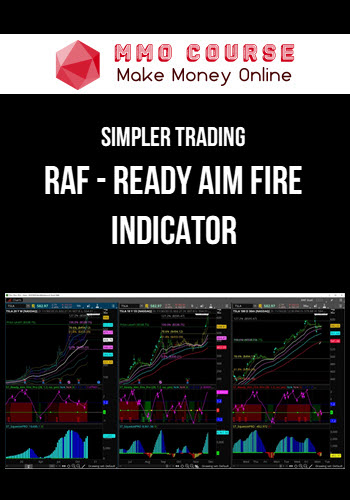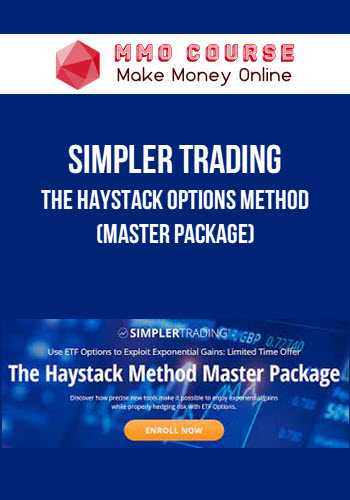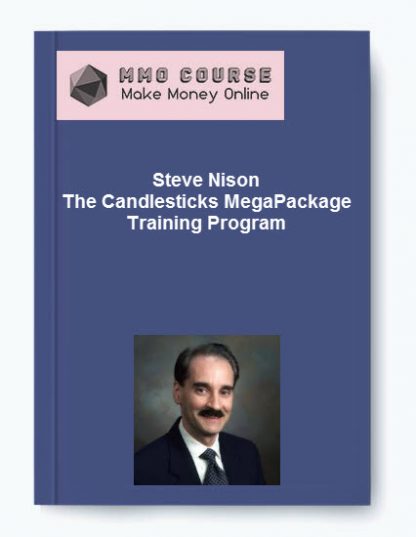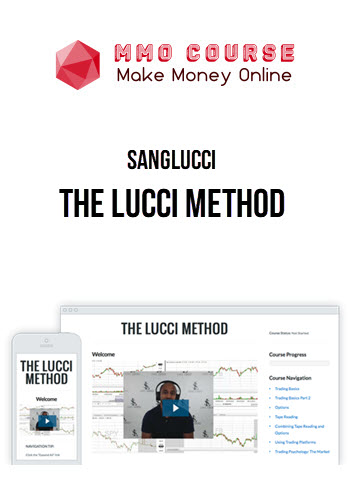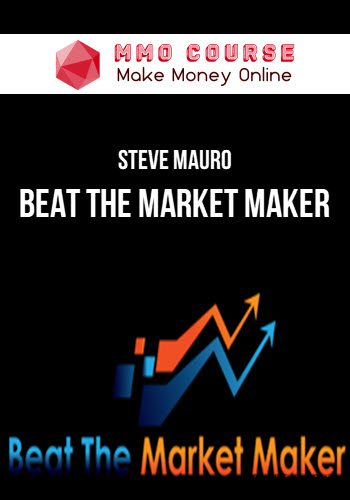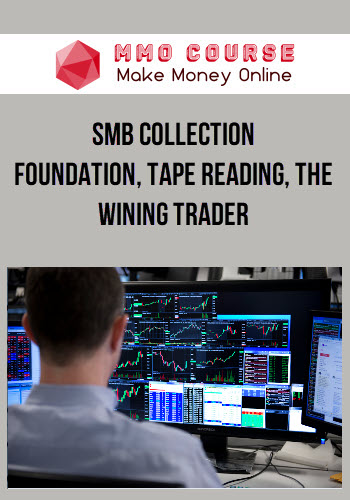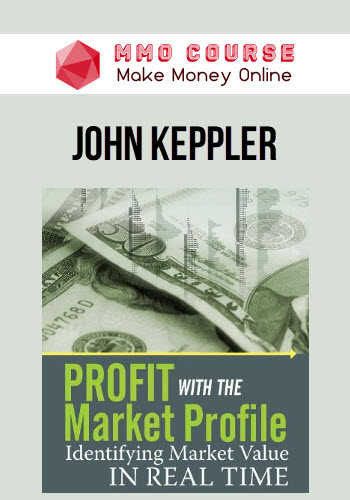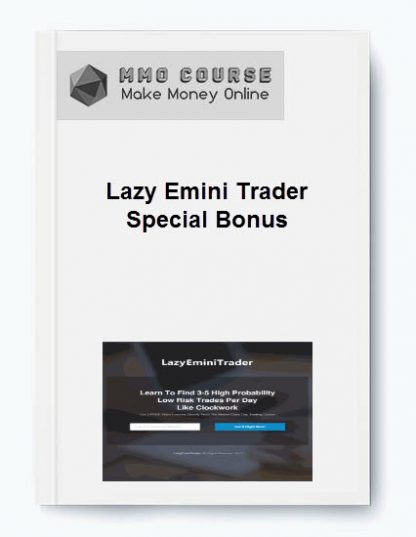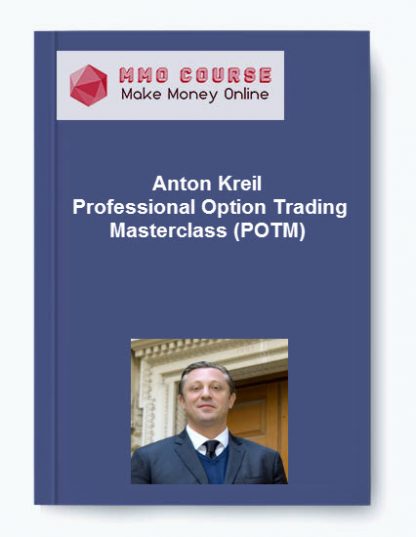Joe DiNapoli – DiNapoli Levels Training Course
$47.00
GB Status: This product will Instant Deliver or within 24h
Salepage: N/A
Description
Joe DiNapoli – DiNapoli Levels Training Course
Four hours and 20 minutes of detailed instruction by Joe DiNapoli and one of his most successful students, professional trader, Merrick Okamoto.
Joe teaches the Leading Indicator, Trend, and Pattern techniques that have benefited so many.
Merrick teaches Momentum Stock trading and Sector analysis from a market makers (he was one) and institutional point of view.
Contents
Section 1: “Supercharge your Day and Position trading using DiNapoli Levels”
Joe, 2 hours and 15 minutes:
Indispensable for day trading — Incredibly effective for position trading (Stocks, Futures, Forex)
– Pinpoint your Entry
– Stop placement and Profit Objectives ahead of market action
– Learn how to shorten your learning curve
You’ll learn the most effective ways to apply Fibonacci ratios to the price axis. You’ll discover how to mix leading and lagging indicators for a high-accuracy, low-risk trading approach.
You’ll find out how to enter strong running market moves “safely” and where to place your stops for maximum protection and minimum exposure. You’ll learn how to calculate pre-defined profit objective points and how to employ the three-period moneymanagement rule to maximize profit and minimize heartache.
You’ll understand the proper, practical, application of Fibonacci ratios to the price axis and you will have access to a trading style with the capacity to produce an incredibly high percentage of winning trades.
Section 2: “Direct Access Equity Trading using Momentum Sector Analysis”
Merrick, 1 hour and 20 minutes:
Market Makers, Market mechanics
– How Market Makers handle overnight orders
– Rules that Market Makers live by
– Advantages that Market Makers have over the public
– Advantages and disadvantages of ECN’s
– How to benefit from the actions of: “the axe” – “the wheel”, the predominant traffickers (Market Makers) in a given stock
– How to front run the Market Maker
– How the (Market Makers) NASDAQ work station on auto execute can be used to fool the public
– Eyes only institutional terminal, how Market Makers advertise on a NASDAQ terminal and fill positions on “eyes only”, a private system for Market Makers
– Importance Market Makers put on getting order flow
– Market Makers ability to see order flow -how that benefits them and costs you!
– On line trading firms sell order flow, how this benefits Market Makers and how this hurts the public
– How Market Makers handle inventory by creating excitement in the stock
– How to be your own Market Maker
Direct Access Trading, Patterns, and Momentum
– The Direct access execution system and how it is used.
– A Discussion of order routing, ECNs, Select net, SOES, etc.
– How Market Makers use the tools we use and some we don’t have
– An investment rule to live by
– Sector Momentum trading, how to get into the right stock at the right time
– Index sorting, how it can affect your stock selection
– How to increase your chances of success substantially
– Proper use of Stochastic Divergence
– isconceptions about Stochastics
– Money management rules for the Investor/Trader
– How to determine where institutional money flows are going
– What the leaders portfolio/ pre opening window can do for your stock selection
– Sympathy plays, how to find them and what to do with them
– Which price securities are best to trade
– How institutional traders make decisions
– Chart patterns, divergence, wash and rinse, volume considerations, 5 day momentum method, volume capitulation
– How to handle 3 day moves
– Institutional issues when buying a given price stock
– How opening and follow through or lack of it determine the direction of the market/ the 10am Rule
Section 3: “Joe & Merrick use the material to forecast coming market events”
Joe & Merrick, 40 minutes:
– See how and why predictions were made!!
– See the incredible accuracy of these techniques for yourself!
– Learn how to make market forecasts on your own!
Forex & Trading – Foreign Exchange Course
You want to learn about Forex?
Foreign exchange, or forex, is the conversion of one country’s currency into another.
In a free economy, a country’s currency is valued according to the laws of supply and demand.
In other words, a currency’s value can be pegged to another country’s currency, such as the U.S. dollar, or even to a basket of currencies.
A country’s currency value may also be set by the country’s government.
However, most countries float their currencies freely against those of other countries, which keeps them in constant fluctuation.
Sale page: Joe DiNapoli – DiNapoli Levels Training Course
Find out more Trading Stock – Forex Courses
Proof:

Delivery Policy
When will I receive my course?
You will receive a link to download your course immediately or within 1 to 21 days. It depends on the product you buy, so please read the short description of the product carefully before making a purchase.
How is my course delivered?
We share courses through Google Drive, so once your order is complete, you'll receive an invitation to view the course in your email.
To avoid any delay in delivery, please provide a Google mail and enter your email address correctly in the Checkout Page.
In case you submit a wrong email address, please contact us to resend the course to the correct email.
How do I check status of my order?
Please log in to MMOCourse account then go to Order Page. You will find all your orders includes number, date, status and total price.
If the status is Processing: Your course is being uploaded. Please be patient and wait for us to complete your order. If your order has multiple courses and one of them has not been updated with the download link, the status of the order is also Processing.
If the status is Completed: Your course is ready for immediate download. Click "VIEW" to view details and download the course.
Where can I find my course?
Once your order is complete, a link to download the course will automatically be sent to your email.
You can also get the download link by logging into your mmocourse.hk account then going to Downloads Page.
Related products
Total sold: 9
Total sold: 14
Total sold: 5
Total sold: 5
